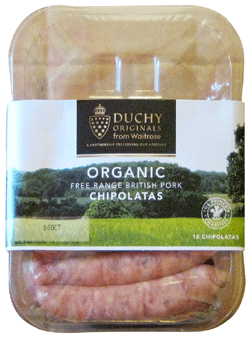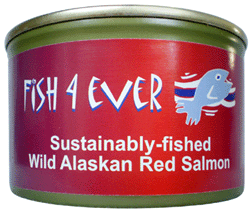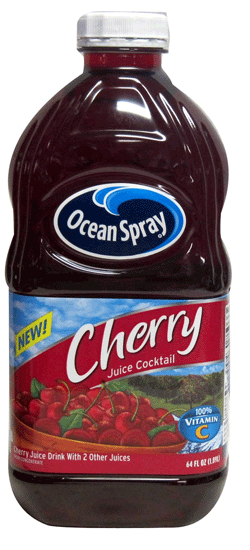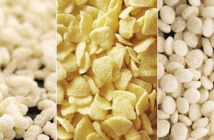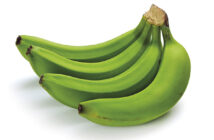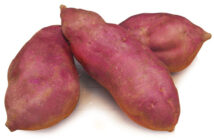Despite financial constraints it appears that consumer interest in making ethical food choices is continuing to increase. Recent data from Innova Market Insights shows that products positioned on an ethical platform of some kind accounted for over seven percent of total global food and drinks launches recorded in the 12 months to the end of October 2011. Five years ago the figure was less than two percent.
While many of these products take an ethical stance based on packaging, including reducing pack sizes, increasing recyclability and using materials from renewable sources, there has also been rising interest in locally-sourced foods, as well as products using certification schemes with regard to fairtrade, sustainability and animal welfare.
Research manager at Innova Lu Ann Williams believes that despite financial pressures tending to be front of mind at the current time, it is apparent that there is still ongoing consumer interest in ethical options and in taking a longerterm perspective on choices that may affect the kind of future that they would like to see.
“This interest is starting to have a greater inf luence on shopping habits and choices, particularly in the more developed economies and companies are responding with options that can cater to these concerns,” she says.
Certain sectors have seen particularly high levels of interest in fairtrade products, with chocolate, hot beverages and fruit, particularly bananas, leading the way.
Fairtrade and ethical cocoa production has increased rapidly in recent years, encouraged by the world’s leading confectionery companies starting to take the concept on board for their high-profile market-leading mainstream brands.
In the UK for example, Nestlé’s KitKat and certain brands of Kraft’s Cadbury Dairy Milk variants carry fairtrade certification, and this has now been complemented by Mars’ announcement that its Maltesers brand will go fairtrade in 2012.
Meanwhile, in the US, Mars’ Dove bar has been relaunched using Rainforest Alliance certified cocoa and in Germany its Balisto chocolate countline bar uses Utz sustainability-certified cocoa.
In the hot drinks sector, products positioned on an ethical platform accounted for nearly 13 percent of total launches recorded by Innova Market Insights in the 12 months to October 2011, reflecting early uptake of fairtrade coffee, tea and cocoa.
Meat, fish and egg launches showed an even stronger interest in ethical issues, with over 13 percent of total launches marketed on an ethical platform, with key areas of interest including animal welfare, particularly in terms of animal management systems, and sustainability, an area of rising levels of interest in the seafood market in particular.
Ethical products accounted for over a quarter of total egg and egg product launches in the year to the end of October 2011, according to Innova, with a strong focus on Europe and probably reflecting preparations for the EU-wide ban on the use of conventional battery-type cages for laying hens, which came into force in January 2012.
As a result, an increasing number of egg brands are emphasising the use of barn-reared, free-range and organic management.
The Innova Database also recorded that 23 percent of global fish and seafood launches carried an ethical positioning of some kind in the 12 months to the end of October 2011, up from 19 percent in the previous 12-month period.
The actual number of ethical launches rose by nearly 10 percent, despite a fall of the number of total fish and seafood introductions over that timeframe.
Sustainability is the major focus of this, with growing numbers of products launched carrying MSC (Marine Stewardship Council) certification, and ongoing interest in capture methods, such as rod and line rather than nets for tuna, and maintaining stocks of threatened species.
This interest in sustainability is most prevalent in Europe, which accounted for over 64 percent of global launches on an ethical platform, compared with a 50 percent share of total fish and seafood introductions.
This tallies with data from the Marine Stewardship Council, which reported that its certification logo was used on over 7,000 labelled products worldwide, led by Germany with more than 2,000 lines, the UK with just under 800 lines and the Netherlands with 740.
By the fourth quarter 2011, this was reported to have risen to about 10,000 products from 1,600 companies, with 10 percent of the global fish catch now certified.
Cherry juices rise to superfruit status
Running parallel to ethical purchasing is a run on berry fruits reflecting a sustained move to healthy eating.
Cherries have long been appreciated for their taste, but growing evidence about their health benefits is now putting them squarely in the frame for ‘superfruit’ status.
Cherry juices are clearly increasing in popularity and increasingly carrying a ‘superfruits’ branding in the wake of a growing body of research linking sour cherries to a whole range of health benefits,” says Ms Williams.
Although they are not among the top fruits used in juice drink introductions, with orange and apple still dominating globally, ahead of mango and grape, they did feature in about 7 percent of the juice and juice drink launches recorded by Innova.
While a significant number of these launches are in the form of blends with other juices, particularly apple, but also berries and other red fruits, we are also increasingly seeing pure cherry juice products.
These are usually on a premium platform, and sometimes specifying the type of cherry, not just sour or tart, but also varieties such as Montmorency.
Research has established that cherries, particularly sour or tart cherries, have a high antioxidant content, and that claim is increasingly being used.
Newer research focusing on potential benefits in terms of reducing inflammation, painkilling properties and improving sleep quality is being published and publicised, and may already be adding impetus to sales as consumer awareness rises.
Developments have been particularly marked in the USA, where tart cherries are a traditional American fruit.
North America accounted for 16 percent of juice drink launches containing cherry, but as well as the more traditional blended products, there have been an increasing number focusing on more specialist cherry juice lines with a strong health image.
For example, the Cherribundi Tart Cherry juice range launched in late 2011, marketed as ‘America’s Superfruit’ and the Old Orchard Very Cherre Premium Tart Cherry Juice featuring a 100 percent juice, as well as blends with other superfruits, such as cranberries, blueberries and pomegranate, all marketed as antioxidant rich and a source of vitamins C and E.
Cherry is also becoming a more popular flavour in launches in Europe, accounting for over 50 percent of the 2011 global total, led by the UK and Germany.
The UK has seen a number of ambient launches over the past few years, including Princes’ inclusion of a Cherry Juice Drink in its exotics range launched in 2011, and has also witnessed the arrival and establishment of specialist brands.
Cherrygood first introduced its range of cherry juice drinks onto the UK market in 2009 with ambient products, but in 2011 it extended its range with the UK’s first chilled cherry juice in late 2011.
Cherrygood Premium Cherry was claimed to have the highest levels of cherry juice and protective antioxidants in any leading chilled juice, highlighting the ‘unique combination of antioxidants’ in its Montmorency cherries and how they can contribute to a healthy lifestyle.
Meanwhile, as is so often the case in the UK, rising interest has also been reflected in rising levels of activity by retailer own-brands, with Marks & Spencer launching a Cherry Juice Drink in a carton in 2011, and Asda adding a Cherry Juice Drink to its Asda Chosen by You range in early 2012.
For further information on the Innova Database:
Glen Wells
Regional Director
Innova Market Insights (Australasia)
Pty Ltd
Tel: +61 2 9647 1479
Email: [email protected]
Website: www.innova-food.com.au


























































































